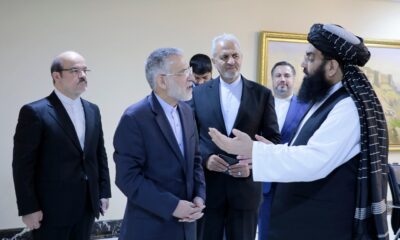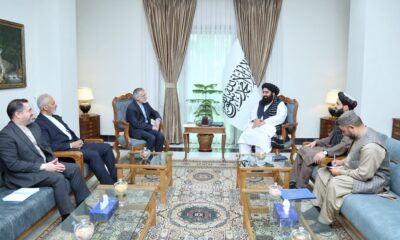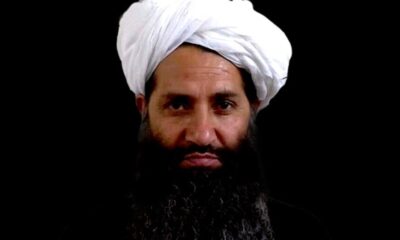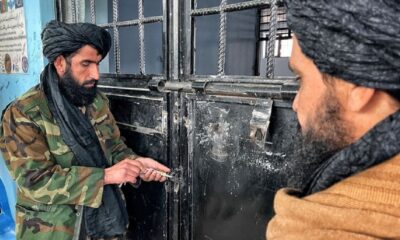IEA says Afghanistan is not responsible for ‘security failure’ of Pakistan
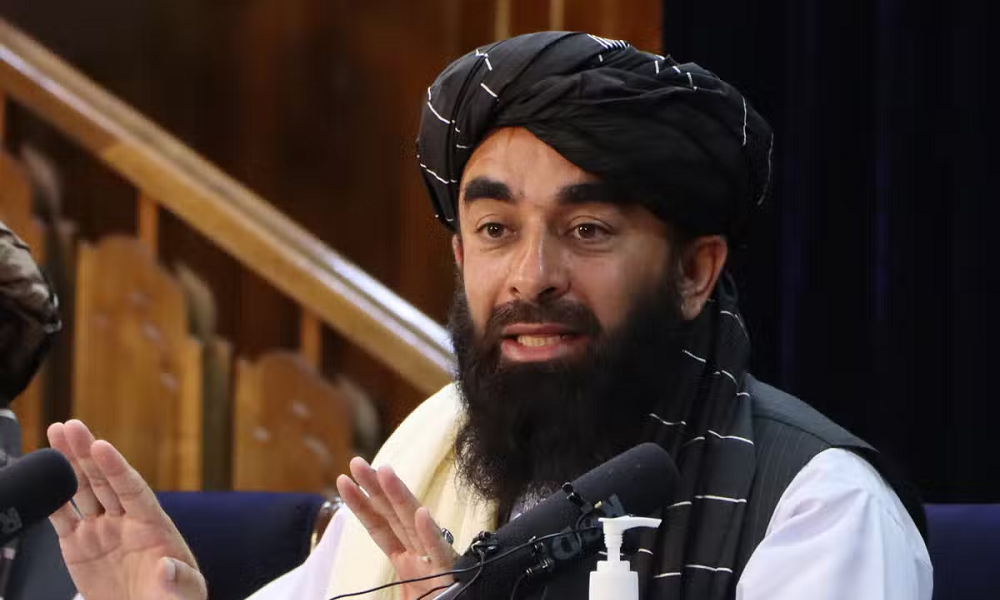
The Islamic Emirate of Afghanistan (IEA) has again rejected claims by Pakistan that Afghan nationals are involved in terror attacks across the border and stated that Afghanistan is not responsible for the “security failure of any country in the region.”
According to a statement issued late Tuesday night by the IEA’s spokesman Zabiullah Mujahid, the IEA “completely rejects these allegations and tells the Pakistani authorities that Afghanistan is a country that has come out of long wars and does not want insecurity in any other country, especially neighboring countries.
“The government of Afghanistan once again reiterates its principled position that it does not allow the territory of Afghanistan to be used against the security of any other country, but this does not mean that Afghanistan is responsible for the security failure of any country in the region.”
The IEA stated that the region has been a “victim of foreign invasion led by America and the wrong policies of some countries in the region” over the past 20 years, “the effects of which are still being felt.”
Pakistan should carefully manage its security situation and find a solution at home, the statement read.
The IEA stated that in the past year, 18 Pakistani Daesh members were killed in different operations in Afghanistan – militants who had carried out explosions and attacks in the country. Dozens more were captured, the statement read.
“Instead of pointing the finger of blame at the Pakistani side, the Afghan government has strengthened its security measures.
It is worth mentioning that if someone attacks in Pakistan or the blood of the Muslims of Afghanistan and Pakistan is shed in the name of Daesh, a solution should be found together, blaming is not the solution.”
The statement also noted that when conspiracies to attack religious scholars and seminaries in Afghanistan and in the region have been uncovered, IEA intelligence agencies have informed countries in the region of this in advance. “Unfortunately, some countries did not take timely measures.”
The IEA again emphasized it is not in favor of attacks being carried out in Pakistan, but that “the prevention and control of attacks inside the territory of Pakistan is not our responsibility; Rather, it is the duty of the security and intelligence agencies in that country, for which they spend a large part of their country’s budget.
In the past two years, since an independent and responsible government has been established in Afghanistan, the security situation in Afghanistan and the region has improved significantly. The fact that security incidents have increased only in Pakistan, Pakistan needs to find a solution in its own country.”

Tahawol
Tahawol: Surge in Afghan refugee deportations from Pakistan
Saar
Saar: Discussion on Afghanistan-US relations
Latest News
Pakistan urges global community to block arms flow to militant groups in Afghanistan

A Pakistani diplomat on Saturday called on the international community to block the flow of modern and sophisticated weapons to militant groups in Afghanistan.
“Terrorist armed groups are in possession of billions worth of illicit arms abandoned in Afghanistan,” Syed Atif Raza, a counsellor at the Pakistan Mission to the UN, told an Arria-Formua meeting of the UN Security Council, convened by Sierra Leone.
“We call upon our international partners to recover the vast stockpile of abandoned weapons, prevent their access to armed terrorist groups and take measures to close this thriving black market of illicit arms,” he said.
Pakistani officials have repeatedly claimed that attacks in the country are planned in Afghanistan and that militants use weapons left behind by foreign forces.
The Islamic Emirate, however, has denied the claim, saying Afghanistan is not responsible for Pakistan’s “security failure”.
-

 Latest News4 days ago
Latest News4 days agoAfghanistan’s reconstruction is in the interest of EU: Uzbek president
-

 Latest News5 days ago
Latest News5 days agoUS won’t rest until all Americans detained in Afghanistan brought home: Rubio
-

 Latest News3 days ago
Latest News3 days agoMinistry of Economy calls on US to release Afghanistan’s frozen funds
-

 Latest News4 days ago
Latest News4 days agoBulgaria brings five people to trial over deaths of 18 Afghan migrants
-

 Latest News3 days ago
Latest News3 days agoPakistan ‘extends’ deadline for a week for Afghans to leave the country
-

 Regional5 days ago
Regional5 days agoChina launches military drills around Taiwan, calls its president a ‘parasite’
-

 Business4 days ago
Business4 days agoGold climbs to record high as tariff worries bolster safe-haven demand
-

 Sport4 days ago
Sport4 days agoIPL 2025: Batters in race for prestigious Orange Cap

